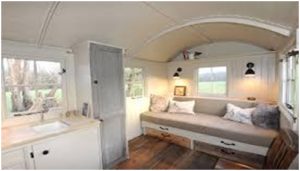Historic Holidays
If you love all things olde-worlde and dream of break-in accommodation that’s a little bit different then why not think about a heritage getaway? There are many places to stay in the UK that offer an experience steeped in history, as one thing the UK has, is tons of history.
Why not stay in a real Castle? Britain has been blessed with so many Castles and these are usually set in beautiful landscapes and are rammed full of history. Many Castles now offer accommodation including bed and breakfast. Others offer on-site accommodation that is self-catering so you can really be your own Lord or Lady for the duration of your stay. Some Castles that you can stay in are Hever Castle in Kent, Leeds Castle in Maidstone, Warwick Castle in Warwickshire, Bickleigh Castle in Devon and Ruthin Castle in Wales.
If lording it around is not really your style then why not try taking a step back in time with a break in a Glamping pod. For those of you that like your military history there is the stunning option of driving a tank.
For those of you that enjoy military history one of the most exciting things you can do is to go on Tank Driving Days where you can take out a classic British mechanized vehicle. Companies such as armourgeddon offer a day of action and a chance to experience first hand what it was like to drive one of these monsters.

A more sedate option is Cottages, these are another option for a holiday full of heritage. There are so many different kinds from romantic retreats, fisherman’s cottages by the sea to large country cottages with hot tubs and even swimming pools. Some quirky cottages include Blue Seas in Cornwall where you can stay in a Victorian fort. Riverbank Cottage in Cumbria straddles an old packhorse bridge over the water. There are converted station houses, former bakehouses, old telephone exchanges, pump houses, and even old churches. The Old Church in Shropshire stands on the site of a much earlier Medieval chapel and contains many original features and also boasts a Jacuzzi spa bath!
There are also historic hotels around Britain that can offer heritage and stunning countryside views. Some are listed buildings and offer a relaxed, country Manor style break or you can find country house hotels that also offer sports and activities such as golf, fishing, and shooting. For a really Royal connection, the Rubens at the Palace in Central London is a historic hotel that sits on Buckingham Palace Road. It offers beautifully furnished rooms, a champagne bar, and two restaurants. You can even catch sight of the Royal horses if you’re lucky. If you don’t fancy London, then head to a more relaxed Pen-Y-Dyffryn on the Welsh borders for a Grade II listed country house with a 2 AA Rosette restaurant.





